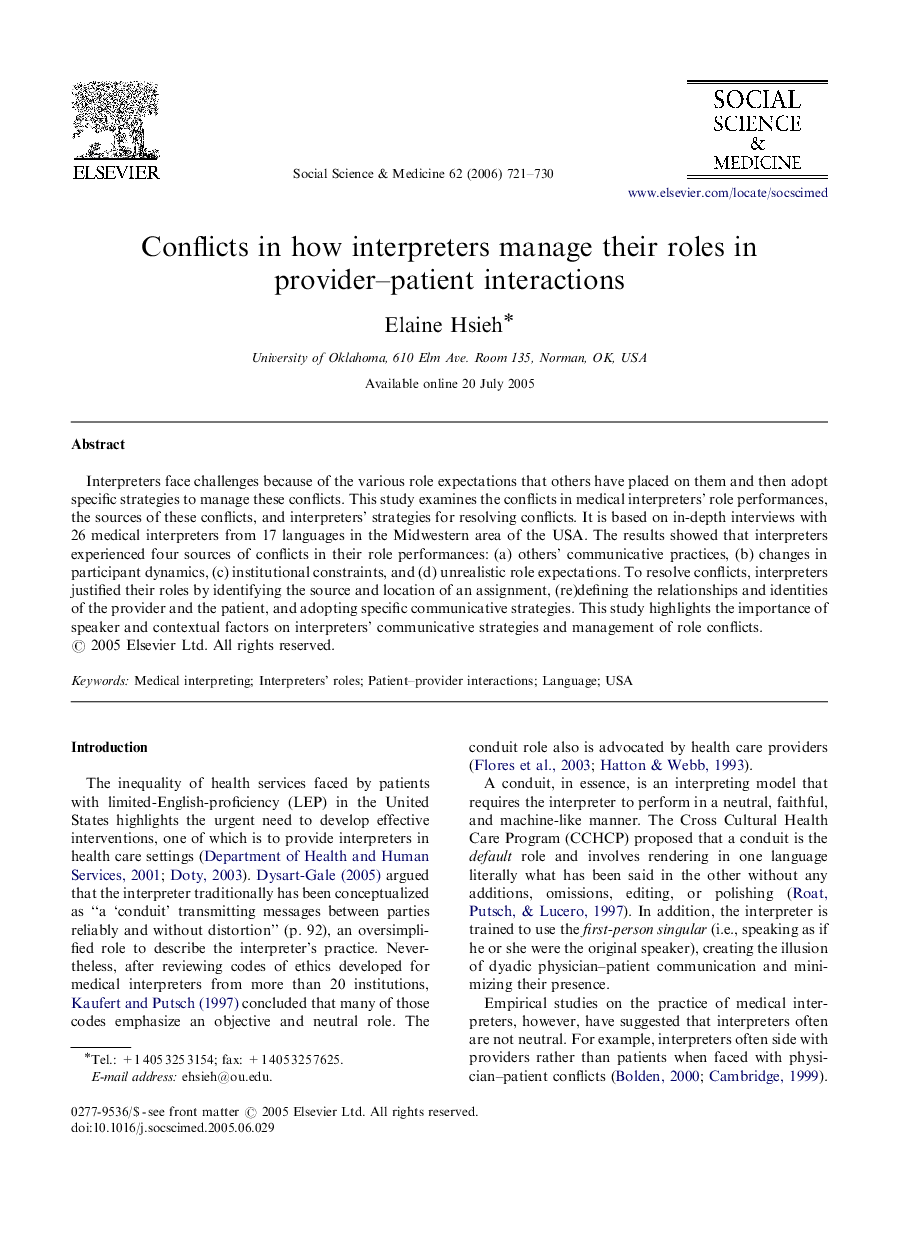| Article ID | Journal | Published Year | Pages | File Type |
|---|---|---|---|---|
| 955101 | Social Science & Medicine | 2006 | 10 Pages |
Interpreters face challenges because of the various role expectations that others have placed on them and then adopt specific strategies to manage these conflicts. This study examines the conflicts in medical interpreters’ role performances, the sources of these conflicts, and interpreters’ strategies for resolving conflicts. It is based on in-depth interviews with 26 medical interpreters from 17 languages in the Midwestern area of the USA. The results showed that interpreters experienced four sources of conflicts in their role performances: (a) others’ communicative practices, (b) changes in participant dynamics, (c) institutional constraints, and (d) unrealistic role expectations. To resolve conflicts, interpreters justified their roles by identifying the source and location of an assignment, (re)defining the relationships and identities of the provider and the patient, and adopting specific communicative strategies. This study highlights the importance of speaker and contextual factors on interpreters’ communicative strategies and management of role conflicts.
